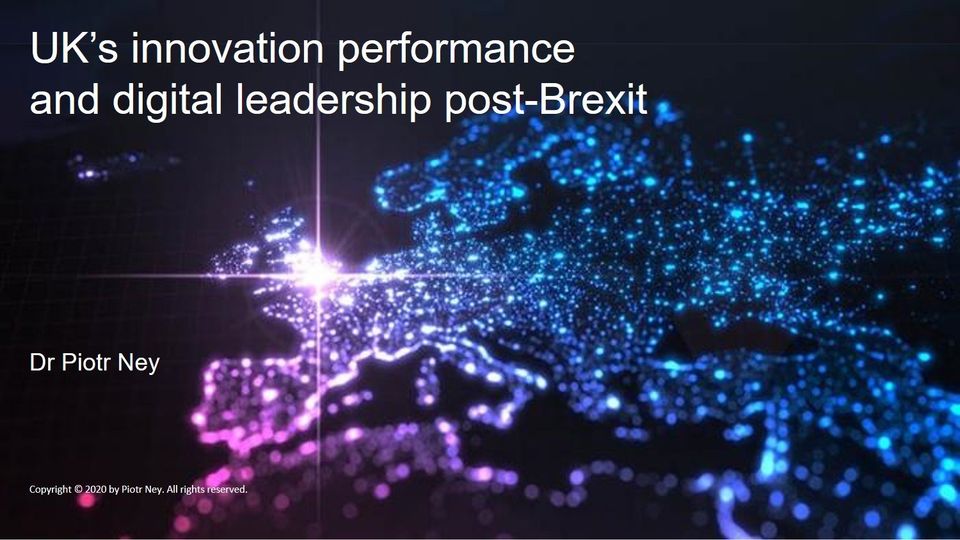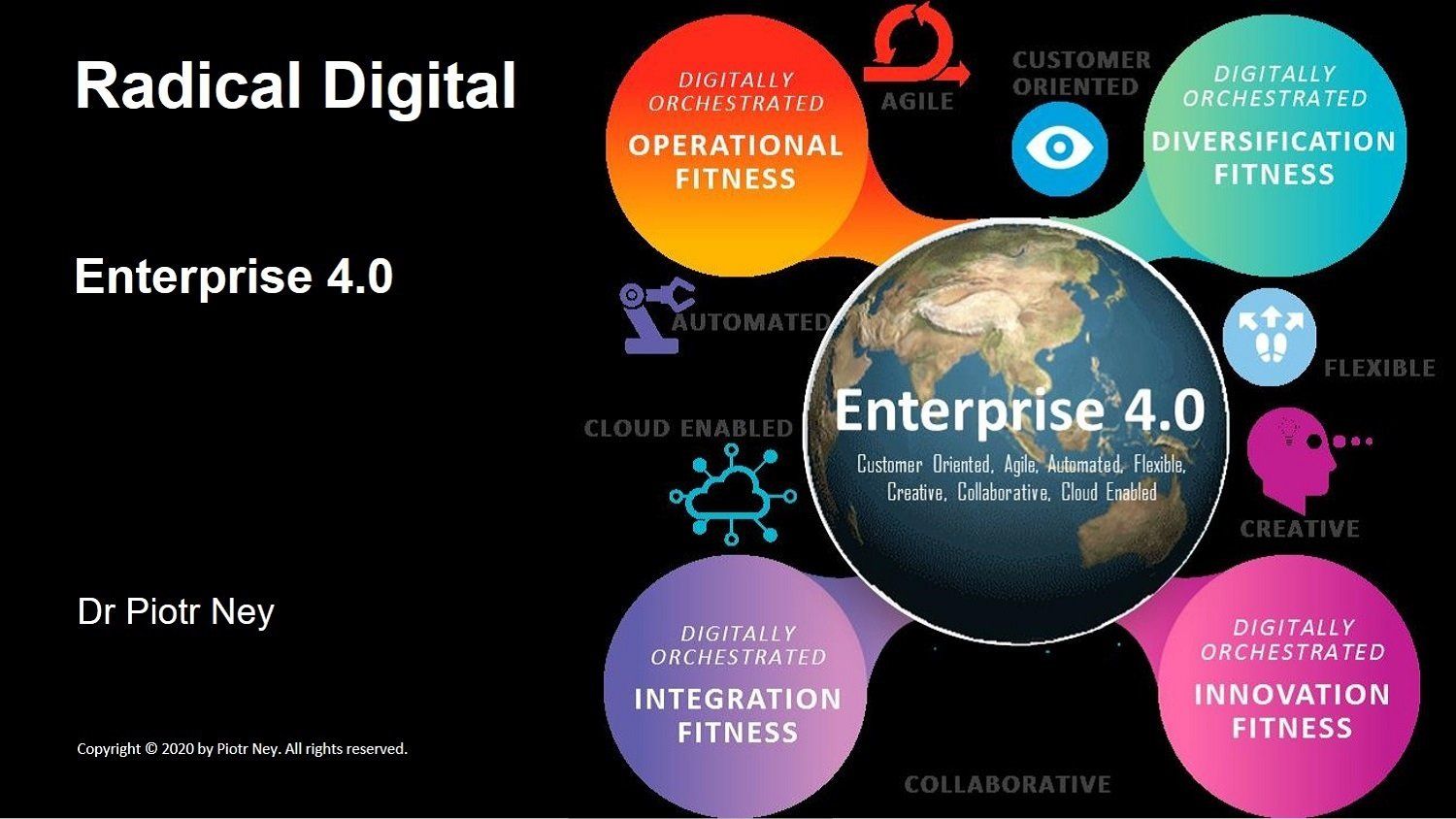UK’s innovation performance and digital leadership post-Brexit

[London, 04 July 2020]
The latest European Innovation Scoreboard was published on 23 June. It shows the UK well ahead of our ex-partners in innovation and entrepreneurship. UK leads the EU average by the relative index (RI) of 121 (EU=100). This means that the UK is 20% more innovative than the rest of the EU, based on a balanced scorecard of academic and industrial metrics.
An even wider gap is shown in entrepreneurial activity. Here it is useful also to compare the UK with France, which is closest to us in terms of size, demographics and industrial profile. In terms of ‘enterprise births’ (10+ employees) such as startups and spinoffs, UK performs four times better than the EU average, and a whopping EIGHT times better than France!
This is supported by UK’s impressive level of VC funding of innovation (IR=188.5) and a highly effective collaborative network of SMEs (the ‘innovative SMEs collaborating with others’ score of IR=267 is two-and-a-half times better than the EU average). UK’s relatively risk tolerant and co-creative culture increasingly promotes disruptive and convergent technologies, and post-Brexit this is likely to accelerate our innovation performance even further ahead of the EU.
Two specific relative weaknesses of the UK are worth commenting on.
The first is in ‘intellectual assets’ (RI=81), such as patent, trademark and design applications.
Here I would challenge the methodology used by the European Commission, or at least the inference some may make from these metrics. IP protection through patenting in a well-established cottage industry in some sectors (say, pharmaceuticals) and keeps an army of IP lawyers content and wealthy. But a patent application is usually a complex, expensive and drawn-out process, which also by definition places your IP into the public domain, and thus immediately available to competitors in unscrupulous countries, which do not enforce international IP law fairly (stand up, China!). It is not appropriate to the many rapid, continuous innovation activities that the UK leads in, such as precision engineering.
For example, there are many globally successful UK firms in the motorsport industry, mainly clustered around the Midlands and Oxfordshire, developing world leading technology and designs for Formula One and other racing categories. They don’t have the time for filing many patents. Instead, their IP is largely process protected, relying on rapid, continuous innovation. By the time their competitors manage to reverse engineer their IP, they would have moved on!
The second reported weakness, ‘broadband penetration’ at RI=78, is indeed frustrating. However, there is light at the end of the tunnel, or more appropriately, glistening in the skies above us. The UK government has just reconfirmed its strategic support for UK’s digital economy by jointly bidding with others for OneWeb’s LEO (low earth orbit) satellite constellation. This will replace EU's Galileo (geo-stationary) PNT system.
If approved, UK taxpayers will pay £400m for 45% of the revived OneWeb 2.0. It is hoped that the UK government will also be smart enough to leverage this investment to reshore OneWeb’s satellite production to the UK. This could be a great boost for our hi-tech manufacturing sector.
OneWeb’s constellation, when completed, promises to provide excellent broadband connectivity across the whole of the UK – ultra high speed and low latency, enabling fast real-time video streaming in full HD. It will prove a huge catalyst to our digital services and rich e-commerce. Also, as it will not share the vulnerabilities of GPS and Galileo to jamming and other attacks, OneWeb’s resilience and scalability make much more sense as the backbone of UK's strategic digital architecture.
So in summary, in terms of innovation performance at least, Brexit has not caused the British economic collapse that the EU predicted.
And we will be even better off if the EU could kindly and rightfully return our £1.2bn investment in Galileo.
Dr Piotr Ney is an energetic promoter of innovation, digital transformation, customer and operational excellence, and sustainability, with some thirty five years of change leadership, consultancy and senior executive experience. He has an MBA in International Business and a PhD in Economics and Management, lectures part-time in Innovation Management and Disruptive Strategy and is a popular speaker at global business events. Piotr works in London and internationally as an independent consultant and educator.
Copyright © 2020 by Piotr Ney. All rights reserved. No part of this work may be published, reproduced or transmitted in any form or by any means, electronic, mechanical, photocopying, recording, or otherwise, without prior written permission of the author.

